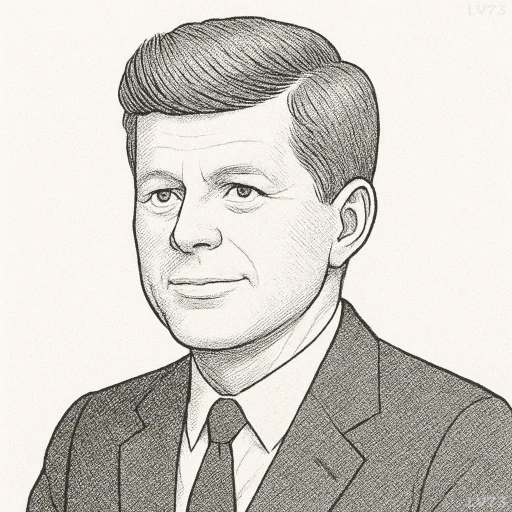“The very word ‘secrecy’ is repugnant in a free and open society; and we are as a people inherently and historically opposed to secret societies, to secret oaths, and to secret proceedings.”

- May 29, 1917 – November 22, 1963
- American
- Politician
table of contents
Quote
“The very word ‘secrecy’ is repugnant in a free and open society; and we are as a people inherently and historically opposed to secret societies, to secret oaths, and to secret proceedings.”
Explanation
In this statement, John F. Kennedy expresses a profound commitment to transparency and the free exchange of ideas, values fundamental to a democratic society. He emphasizes that secrecy—whether in the form of hidden agendas, secretive organizations, or undisclosed governmental actions—runs counter to the principles upon which the United States was founded. By invoking the idea that Americans are “inherently and historically opposed to secret societies,” Kennedy is drawing attention to the nation’s long-standing suspicion of any groups or movements that operate outside the public eye, with undue influence and power. The quote suggests that for a society to remain free, its leaders must be held accountable and its processes must be open and transparent to the scrutiny of the people.
Kennedy’s remarks were made in the early 1960s, a time when the U.S. government was grappling with concerns about governmental secrecy, particularly in the context of the Cold War and the growing military-industrial complex. The speech was intended to reassure the public about the government’s commitment to openness and to distinguish his administration from those that might use secrecy as a means of consolidating power and manipulating public opinion. Kennedy was also signaling the dangers of an unaccountable government, where secrecy could breed corruption and undermine democracy.
In the modern era, Kennedy’s warning is still relevant as issues of government surveillance, corporate transparency, and the secrecy of intelligence agencies continue to challenge the balance between national security and civil liberties. With the rise of digital technologies and data collection, the line between privacy and transparency has become even more complex. Kennedy’s message reminds us that while security and confidentiality are sometimes necessary, excessive secrecy—whether in government or other institutions—can lead to a loss of trust and undermine the very foundations of a free society. His quote calls for a government that is open and accountable, with mechanisms to ensure that the people are informed and engaged in the decisions that affect their lives.
Would you like to share your impressions or related stories about this quote in the comments section?



